Written by Raphaelle Ortiz
On Wednesday July 12, the Transboundary Water Cooperation Coalition organized a very well-attended side event at the High-Level Political Forum 2023 at the United Nations (UN) Headquarters in New York City to take stock and reflect on the direct benefits of transboundary cooperation.
Sergio Campos, the Chief of the Water and Sanitation Division at the Inter-American Development Bank (IDB), moderated the session and invited the panelists to reflect on the following questions:
- How can water dialogue transform risks of tension into cooperation potential?
- What opportunities exist to articulate, promote, and maximize the shared benefits of water cooperation equitably across communities, sectors, and countries?
- What needs to be done to accelerate progress and have arrangements and joint bodies for water cooperation in place for all transboundary rivers, lakes, and aquifers by 2030?
At the beginning of the event, Christian Frutiger, the Assistant Director General of the Swiss Agency for Development and Cooperation (SDC) shared some opening remarks. As climate change-related natural disasters become increasingly frequent and devastating, the need for collaboration between States is evermore necessary to avoid conflict, particularly in water-stressed regions.
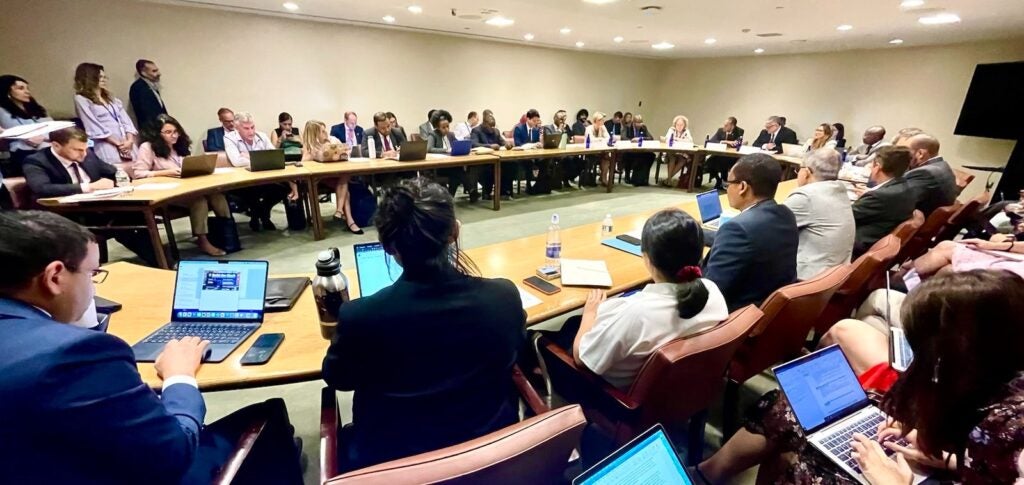
Most of the session was devoted to a roundtable between key decision-makers in Europe, Africa, and Latin America, including Jaana Husu-Kallio, the Permanent Secretary of the Ministry of Agriculture and Forestry of Finland, Karin Gardes, the Acting Executive Director of the Stockholm International Water Institute (SIWI), and Ilka Hirt, the Deputy Director-General of International Policy of the Federal Ministry for the Environment, Nature Conservation, Nuclear Safety and Consumer Protection of Germany. They highlighted concrete benefits transboundary cooperation brought them for fisheries and flood protection.
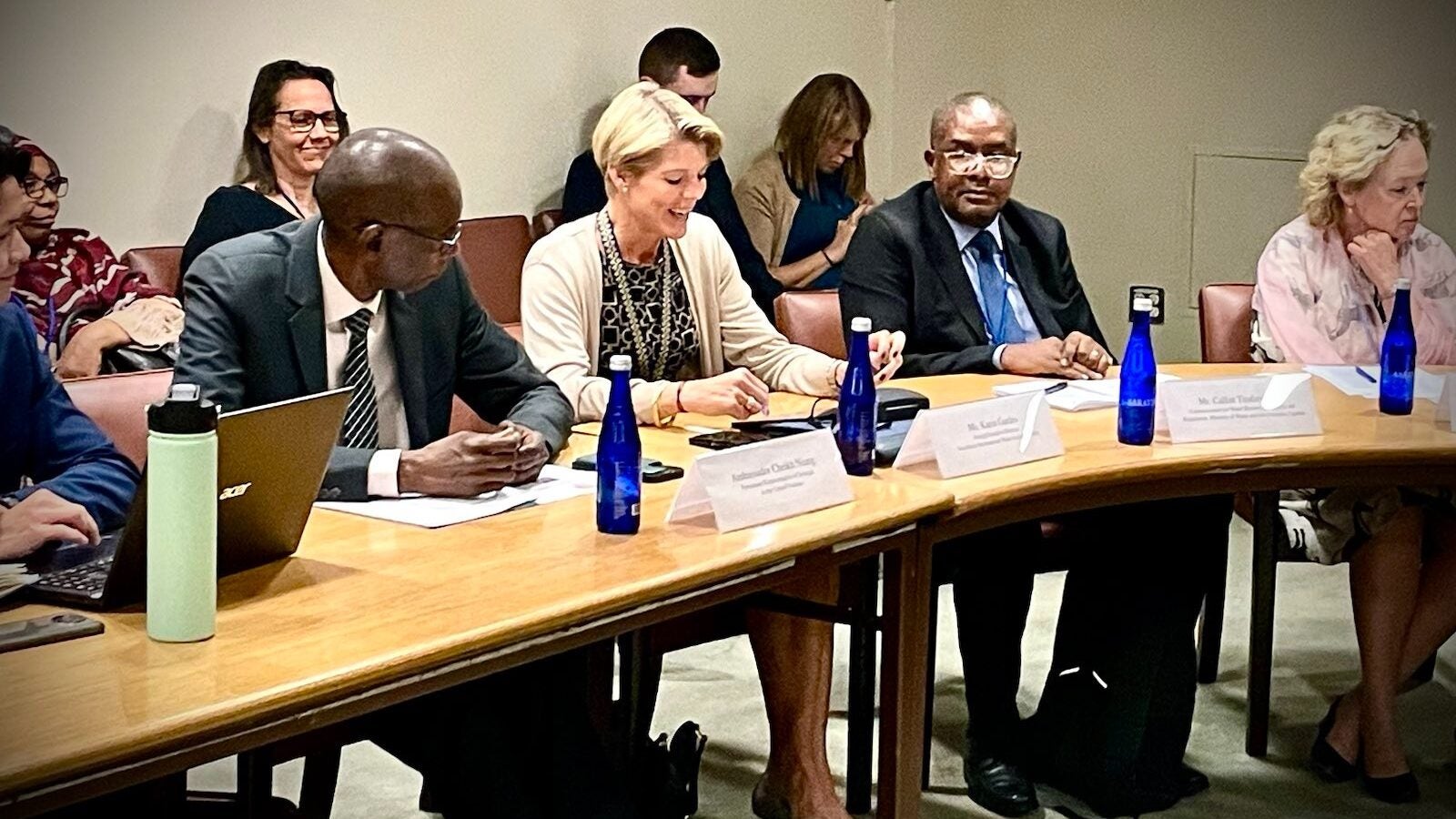
Karin Gardes, the Acting Executive Director of the Stockholm International Water Institute (SIWI) shares her thoughts on transboundary waters. Photo credit: Elise Zerrath (UN).
The Deputy Executive Secretary of the United Nations Economic Commission for Europe (UNECE), Dmitry Mariyasin, emphasized the direct and indirect benefits of transboundary cooperation under the UN Water Convention, such as increasing stability, creating enabling environments for investments, supporting climate action and the 2030 Agenda, and protecting ecosystems. He highlighted the increasing number of countries that have joined the Convention from around the world.
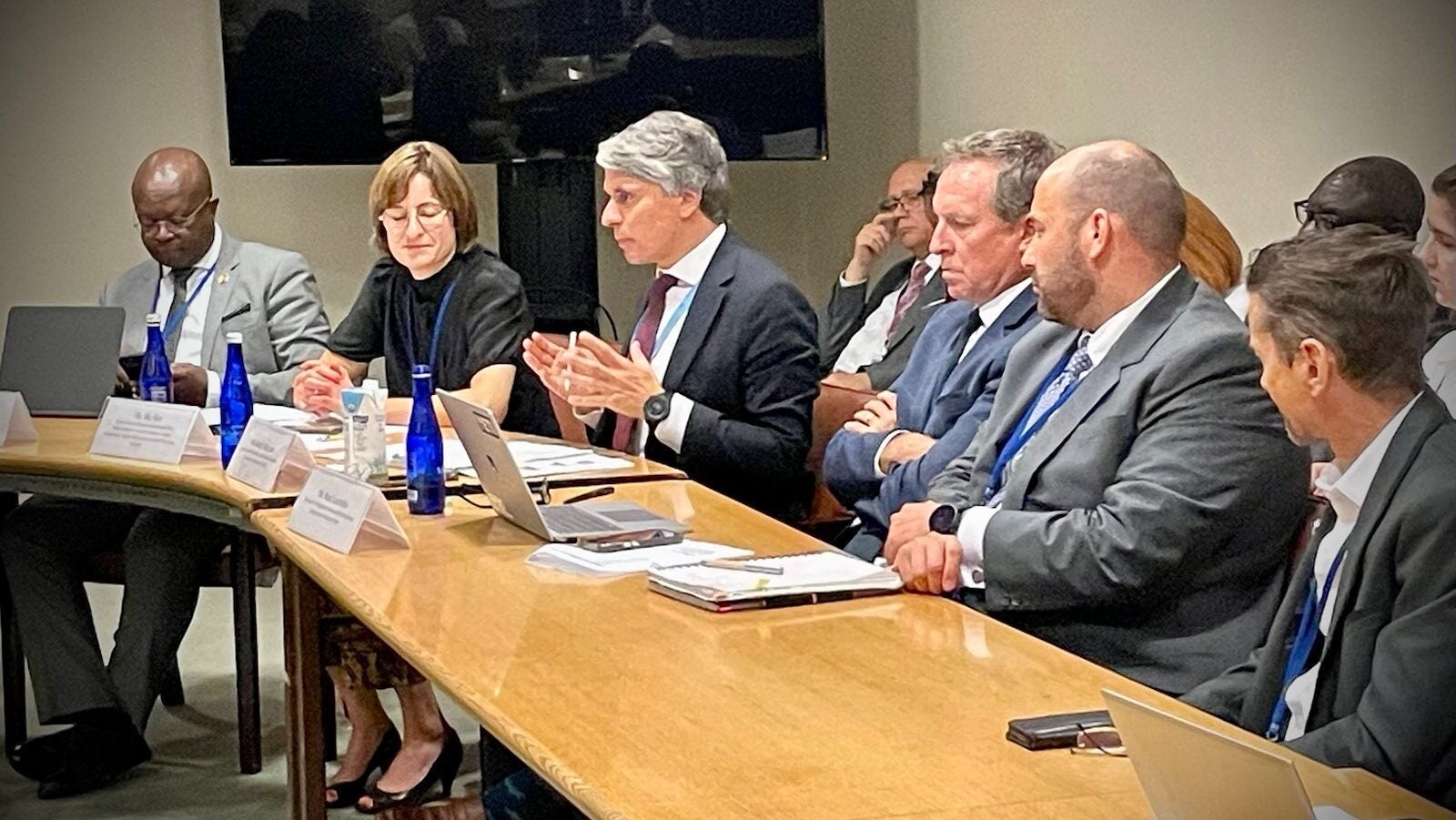
Obeth Kandjoze, the Director General of the National Planning Commission of Namibia, addressed the increasing threat of water conflicts and stressed the unifying ability of water. “Water should be a commodity of unity not conflict, and in Namibia, we believe that shared water sources can be managed in peace and harmony”, he stated. As of June 8, 2023, Namibia became the first Southern African country and 50th country globally to accede to the UN Water Convention. Mr. Kandjoze also linked the benefits of transboundary cooperation to reducing hunger and poverty.
The Commissioner for Water Resources Planning and Regulation of the Ministry of Water and Environment of Uganda, Callist Tindimugaya, echoed these ideas. He focused on the Sio-Malaba-Malakisi basin, which is shared by Uganda and Kenya. Both countries have engaged in a multi-stakeholder process to improve water management in the basin and address pollution, floods, land fragmentation, and overpopulation. Uganda is close to joining the UN Water Convention.
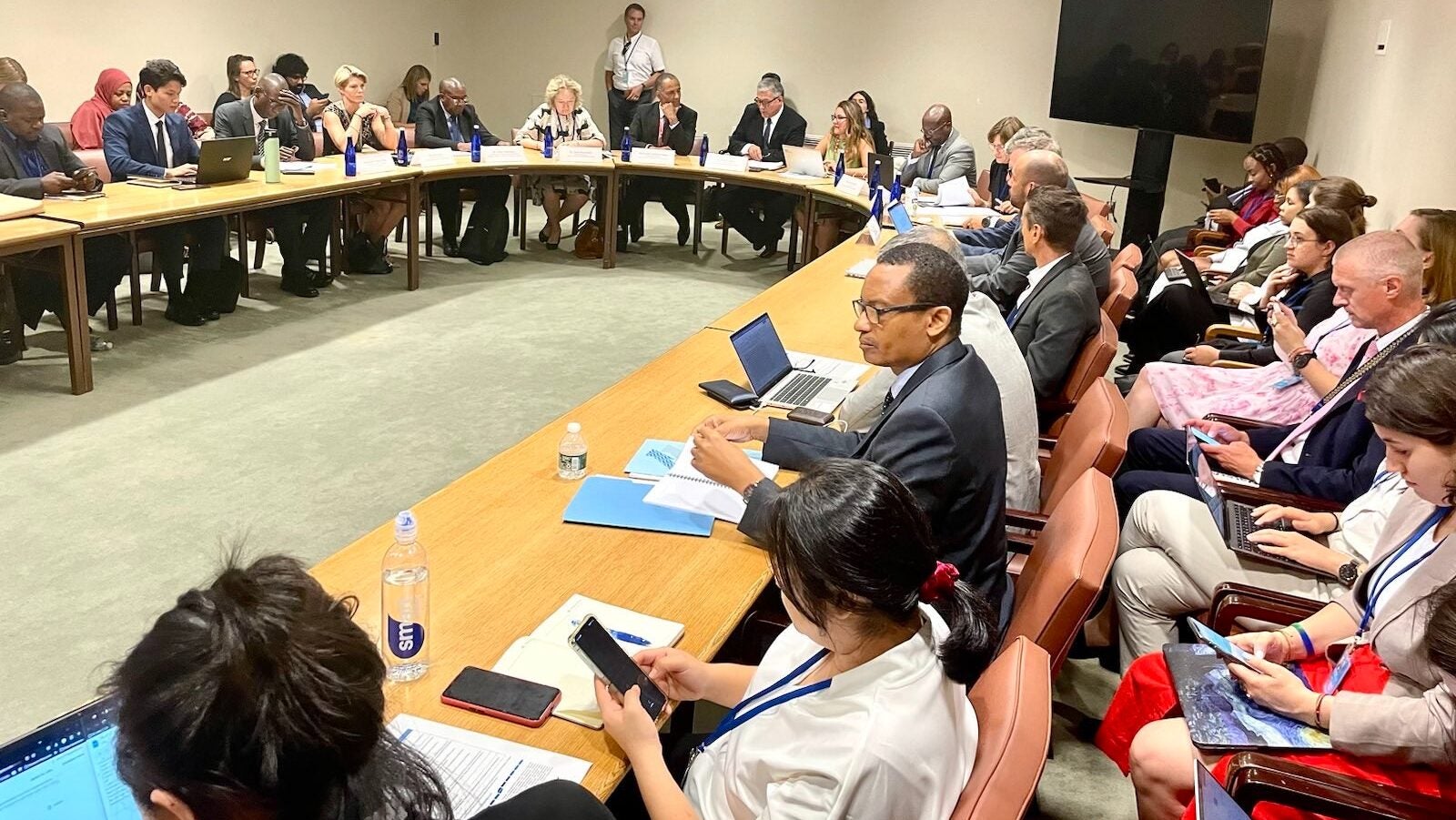
Mark Lambrides, Director of the Department of Sustainable Development of the Organization of American States (OAS), reiterated the importance of combining diplomacy, governance, and science to help countries address floods and droughts in Latin America and the Caribbean. “Water diplomacy and transboundary ecosystems should facilitate, on equal terms, dialogue, cooperation, and the search for consensus to facilitate the search for technical, political and financial alternatives to complex problems that impact development and peace in transboundary ecosystems” he stated.
He also shared some specific examples of how the OAS in partnership with IDB as part of the Inter-American system support transboundary decision-making in the Cuenca del Plata region, the Hispaniola Island, and the North Andean region of the Americas.
After a short question and answer session, Cheikh Niang, the Permanent Representative of Senegal to the United Nations, shared some closing remarks. He summarized the key messages of other panelists and emphasized the importance of transboundary networks, such as the UN Water Convention and the Transboundary Water Cooperation Coalition, to provide a better, more peaceful, and transparent life for future generations.
This panel discussion was a follow-up to the Interactive Dialogue 4 on Water for Cooperation, co-chaired by Senegal and Switzerland, which took place during the UN Water Conference 2023. Future high-level panels and international conferences such as the SDG summit should move the transboundary water cooperation agenda forward and lead to concrete action in various transboundary basins.
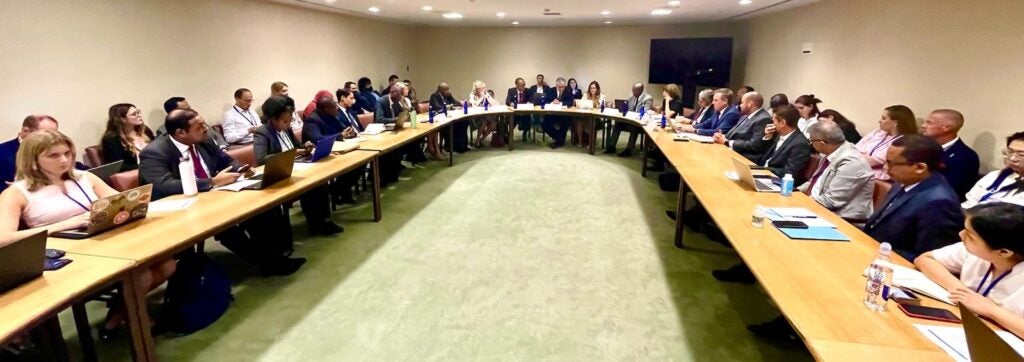
Find out more!
The Water Convention and the Protocol on Water and Health
Guest Authors
Raphaelle Ortiz is a research consultant for the Organization of the Americas (OAS). She works on publications, blogs, and other research products. She has a BA in Global Environmental Change and Sustainability from Johns Hopkins University and an MPA in Environmental Science and Policy from Columbia University.

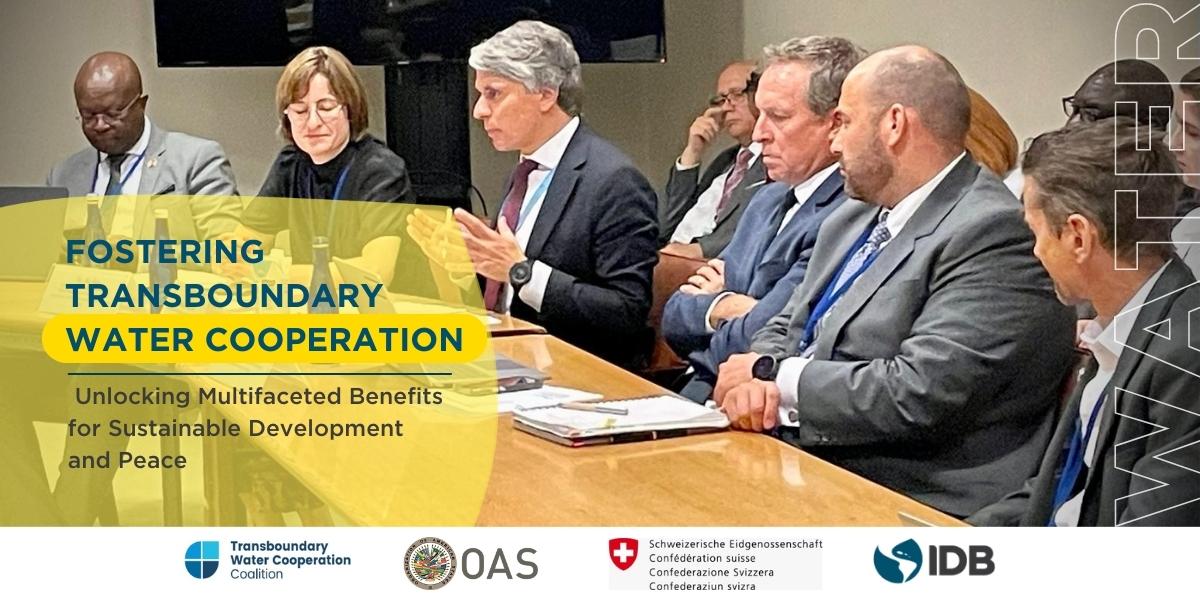
Leave a Reply